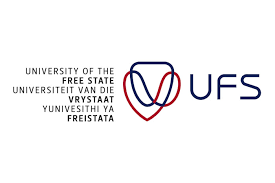UFS Supports Foreign-Trained Doctors in OSCE Board Exam Preparation Program
After being approached by the Premier of the Free State Province, the University of the Free State (UFS) Faculty of Health Sciences assisted foreign-trained doctors to prepare for the objective structured clinical examination (OSCE) component of their national board exams in order to register in South Africa as doctors.
Over the past two weeks, the faculty has provided some last-minute training to 49 students who studied at universities in Russia, Turkey, and China. These students completed their studies between 2020 and 2022 but were unable to take the board examinations.
The Honourable Premier Mxolisi Dukwana approached the UFS to assist the students in preparing for their board examinations, as their training was incompatible with what is required in South Africa. The students were also not registered by the Health Professions Council of SA (HPCSA).
“This was an initiative by the offices of Premier Dukwana and Prof Francis Petersen, Vice-Chancellor and Principal, to prepare the students for their OSCE board exams in order to register in South Africa as doctors.
“The challenge is that what they were taught overseas might not be relevant to the South African population. They were taught about HIV prevention in China and not treating HIV, so we had to improve their knowledge regarding the burden of disease in the South African context,” said Prof Nicholas Pearce, Head of the School of Clinical Medicine in the Faculty of Health Sciences.
Support government with skills development
Premier Dukwana lauded the UFS for assisting the students at short notice. According to him, the university did not hesitate to help, and was honest about the challenges facing the students.
“The most important thing is your willingness to assist us. When we first met, you had a positive attitude and said you would help us, but you also informed us about the challenges. You could have easily said ‘we can’t (help)’ or ‘why didn’t you bring the students here first.’ You welcomed us,” Dukwana told Prof Gert van Zyl, Dean of the Faculty of Health Sciences, Prof Pearce, and other members of faculty during a meeting.
According to Prof Pearce, who was involved in lecturing the students, the programme was adjusted according to the gaps in the training that students received at the universities overseas. “We were very impressed with all the students; their knowledge is good, they are very inquisitive, polite, engaging, and of a very high quality. They are struggling with the integration into the South African context, and they don’t know things such as forensic pathology.”
“They appreciate the intervention now. We are trying to see where the gaps are and adjust the programme accordingly. They haven’t seen many traumas in the countries they were trained in, as they have less trauma cases there.”
Service to others
Prof Pearce said they are already looking at the programme for next year, as the university aims to continue to support the government in terms of skills development in much-needed areas.
The premier told the students to not lead a selfish life, but to rather serve others. “When you were asked what you want to be when you grow up, your answer was driven by the fact that you want a good life for you and your family. It was not driven by a desire to be of service to others. It was also driven by selfish desires to live a better life. The best version of yourself is when you go out and become of service, not only to yourself, but to others.
“Your profession is a very important one – it is how you take care of those who come to you. I want you to know it’s not only about being a medical doctor, but it’s about being a human being, it’s about being a servant to those who come to you for help. I hope that all of you will not live a selfish life.

